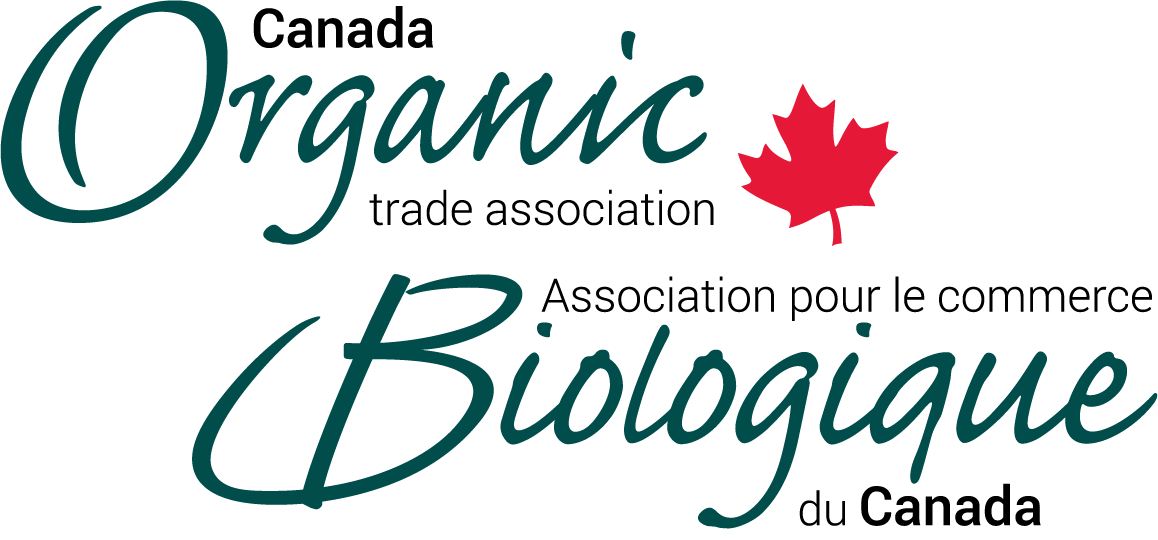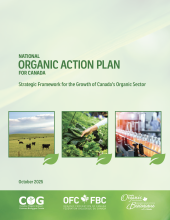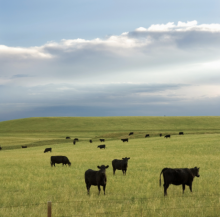A shared roadmap to grow Canada’s organic food and farming sector
The Canadian Organic Alliance (COA) -- a national coalition of the Canada Organic Trade Association (COTA), Canadian Organic Growers (COG), and the Organic Federation of Canada (OFC) -- and partners
have released the Organic Action Plan for Canada.
Developed through broad input from the organic sector, the Plan sets out a national framework and shared vision to grow organic food and farming across Canada.
Why an Organic Action Plan
Canada’s food and farming systems face growing pressures -- from market disruptions and trade barriers to thin farm margins, food insecurity, and accelerating climate change and biodiversity loss. Building a resilient, sustainable agriculture and food system is now an urgent national priority.
Organic food and farming deliver proven economic, environmental, and social benefits. The Canadian organic market now exceeds $9.75 billion annually, yet Canada remains without a national strategy to meet this opportunity.
As demand rises, domestic production has stalled - and competitors are filling the gap. The United States invests 8× more per acre in organics than Canada, and the European Union invests over 200× more.
The Organic Action Plan identifies the actions needed to strengthen and expand organic production and markets in Canada - and make organic food accessible for Canadians.
Read the Organic Action Plan |
Read the Press Release |
The Plan calls for collaboration among government, industry, and civil society to unlock the full potential of organic food and farming in advancing Canada’s economic, environmental, and social goals. It provides a clear path for coordinated investment and policy action.
Three Pillars of the Plan
|
1. Accelerate growth and innovation in organic production Expand research, training, and transition supports to increase domestic productivity and supply.
|
|
|
2. Grow organic markets and demand Strengthen domestic and export markets through improved processing and distribution infrastructure, public procurement and education of organic, while ensuring affordable consumer access.
|
|
|
3. Strengthen policy, regulatory and data infrastructure for organic Establish policy direction, modernize regulations and improve access to data to guide organic development and uphold organic integrity. |
Together, these pillars outline a roadmap to expand organic production, grow domestic and export markets, and enhance the sector’s contribution to Canada’s economy. The Plan positions organic agriculture as a ready-to-scale, market-driven system that delivers jobs, prosperity, and long-term competitiveness.
About the Canadian Organic Alliance
The Canadian Organic Alliance (COA) unites Canada’s national organic organizations, representing and supporting over 7,500 organic operators across the country. Together, COA partners work to strengthen Canada’s organic sector and ensure Canadians have access to healthy, sustainable food.
|
|
|
|
If you are interested in contributing to the next steps of the Organic Action Plan and its implementation, please contact My-Lien Bosch at mbosch@canada-organic.ca.




